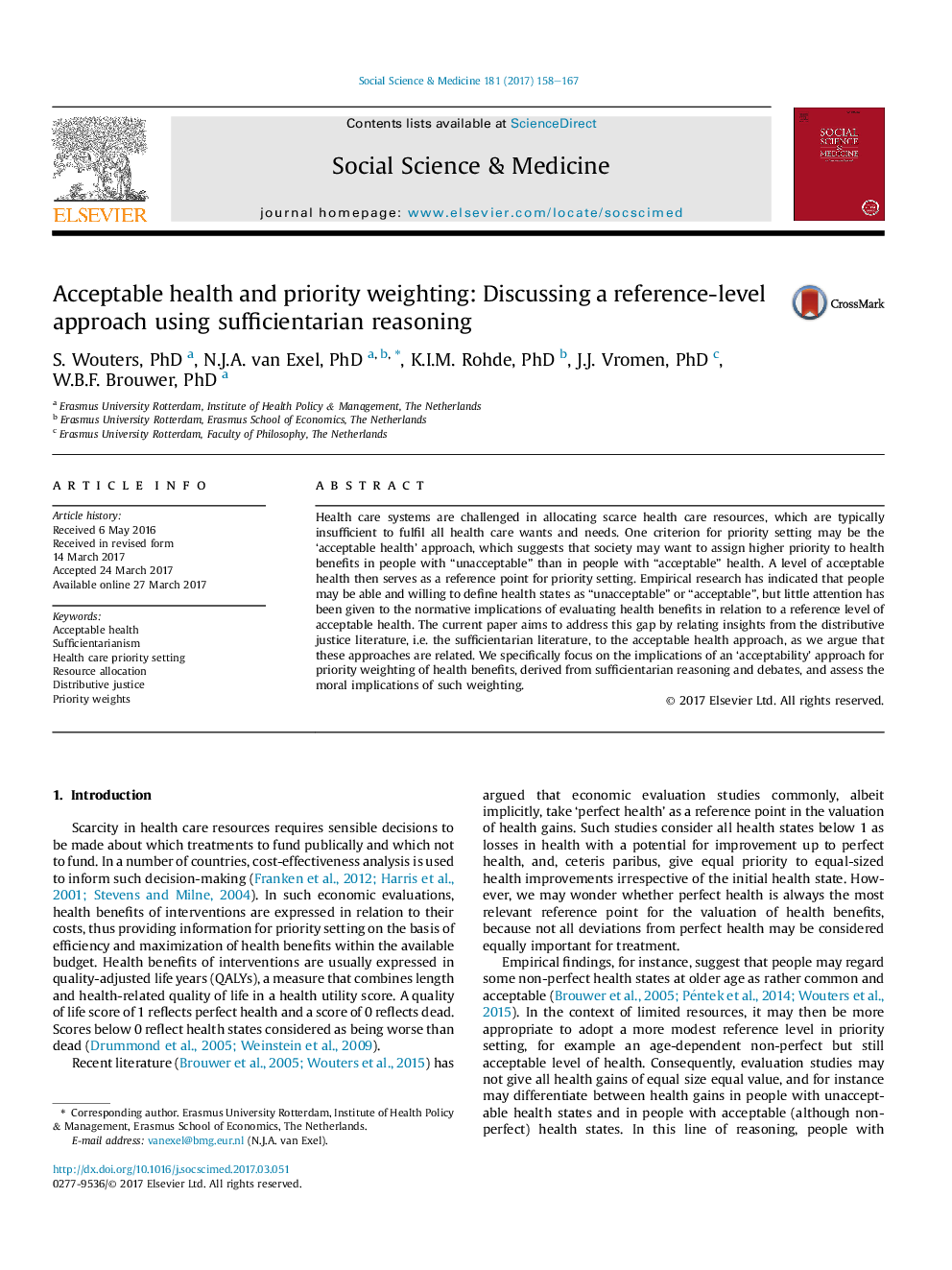| Article ID | Journal | Published Year | Pages | File Type |
|---|---|---|---|---|
| 5046609 | Social Science & Medicine | 2017 | 10 Pages |
â¢In standard QALY calculations, perfect health is implicitly taken as a reference point.â¢We investigate taking non-perfect, but still acceptable health as a reference point.â¢We use insights from sufficientarian reasoning and debates.â¢We present weighting functions for sufficientarian acceptable health thresholds.
Health care systems are challenged in allocating scarce health care resources, which are typically insufficient to fulfil all health care wants and needs. One criterion for priority setting may be the 'acceptable health' approach, which suggests that society may want to assign higher priority to health benefits in people with “unacceptable” than in people with “acceptable” health. A level of acceptable health then serves as a reference point for priority setting. Empirical research has indicated that people may be able and willing to define health states as “unacceptable” or “acceptable”, but little attention has been given to the normative implications of evaluating health benefits in relation to a reference level of acceptable health. The current paper aims to address this gap by relating insights from the distributive justice literature, i.e. the sufficientarian literature, to the acceptable health approach, as we argue that these approaches are related. We specifically focus on the implications of an 'acceptability' approach for priority weighting of health benefits, derived from sufficientarian reasoning and debates, and assess the moral implications of such weighting.
